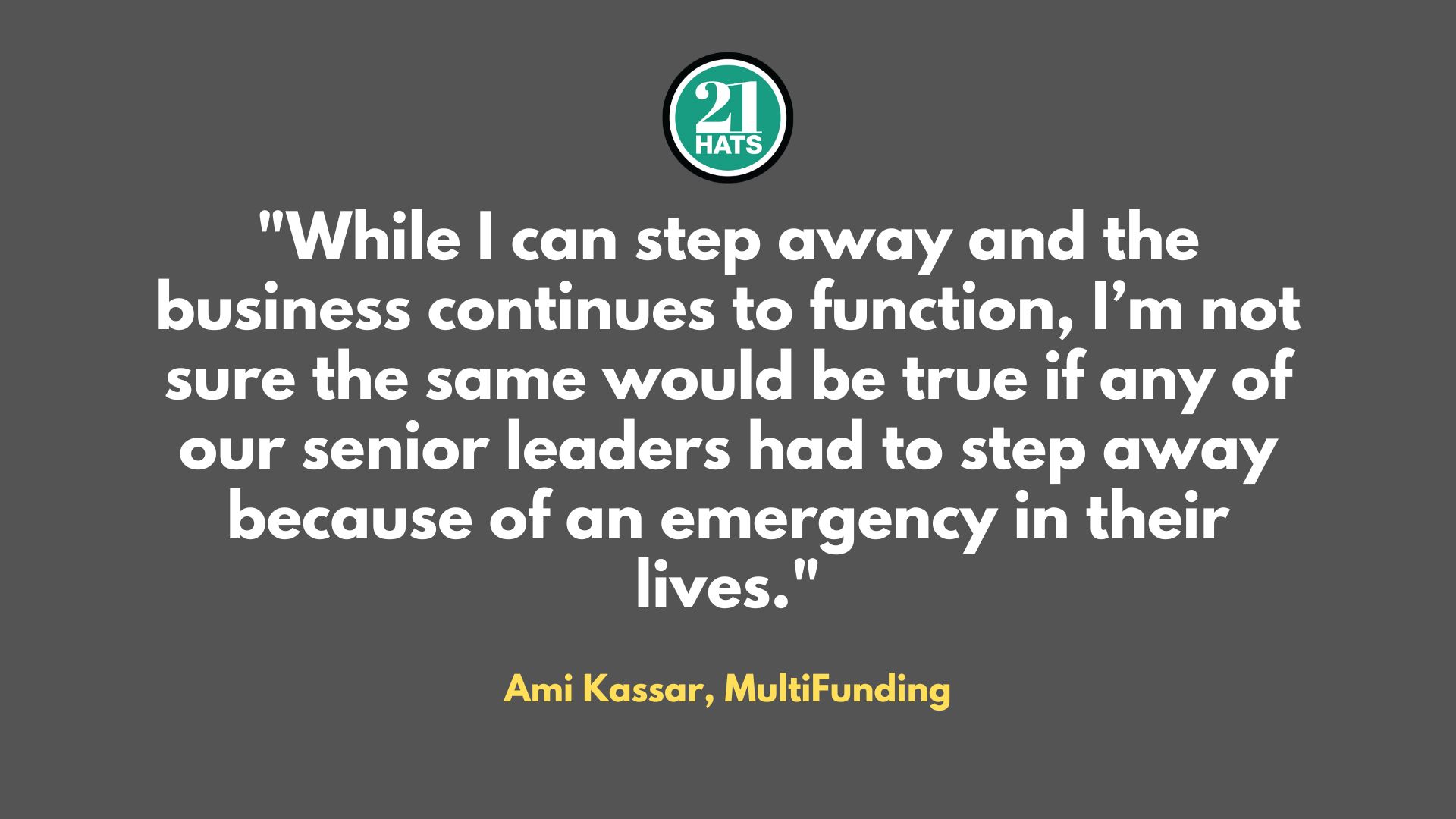I’ve Been Trying to Make Myself Obsolete

And the last few weeks have shown that I’m getting there. But there’s much more to do.
By Ami Kassar
I have often written that as a leader, you should constantly try to get yourself fired. What I mean by that is that if you find people or add people in your organization to take things off of your plate that they can do better, you will be able to work “on your business” instead of “in your business.” I have been trying to get fired since I started my company, and I believe this philosophy has served our company well as we have grown and evolved.
But constantly trying to get fired is not easy. You must be willing to give up control at different stages in your growth cycle and accept that as you empower others to do things you have been doing, it won’t be quite the same. As hard as this is, if you don’t figure out how to give up control, you will never scale. I remember how hard it was for me to give up processing loans for example. I asked myself repeatedly: How could customers ever want to work with anybody but me? But if I had not given this up, we would be 20 percent of our size today.
Today, I want to take this idea further. Effective leadership requires that your organization be strong enough that should you get hit by a bus one day or face some other emergency, you can move your focus from your work to another area of your life for a period of time and the trains will keep running.
Have you considered what would happen if you couldn’t do anything in your company for 30 days? Call it a forced sabbatical. Would the company function? Are there essential things that you do that nobody else can do or knows how to do? It’s not just a good idea, it’s our responsibility as leaders that we ensure we can disappear for some time without everything falling apart.
I have lived this forced sabbatical over the last 30 days. I stepped away from my company to focus efforts and energy on responding to the crisis in Israel and Gaza as part of a grassroots effort of Entrepreneurs’ Organization members around the globe. Somewhat to my own surprise, mainly due to my try-to-fire-yourself philosophy, this has gone better than I would have expected. The trains have kept moving, and internal teams have been going ahead and making marketing and partnership decisions that I otherwise would have been involved in.
That said, I have realized something important. While I can step away and the business continues to function, I’m not sure the same would be true if any of our senior leaders had to step away because of an emergency in their lives. It’s my responsibility to change that. I plan to help them work on this over the next several months. We need to build enough support into their teams so they can step away at a moment’s notice if they need to. This might involve hiring more people or adding cross-functional support. I don’t exactly know how this is going to work yet, but it’s on my mind.
And with all the chaos and sadness in the world, I have had an additional thought. We are in no way prepared if, God forbid, I were hit by that bus we’re always talking about. There is no clear succession plan, and there’s no playbook about what to do. Sure, we have our wills, but that just deals with our assets. It says nothing about what should happen to the company. This is another area that deserves my attention.! I wish I could share with you how I plan to think about this challenge. I really don’t know yet.
Ami Kassar is CEO of MultiFunding.